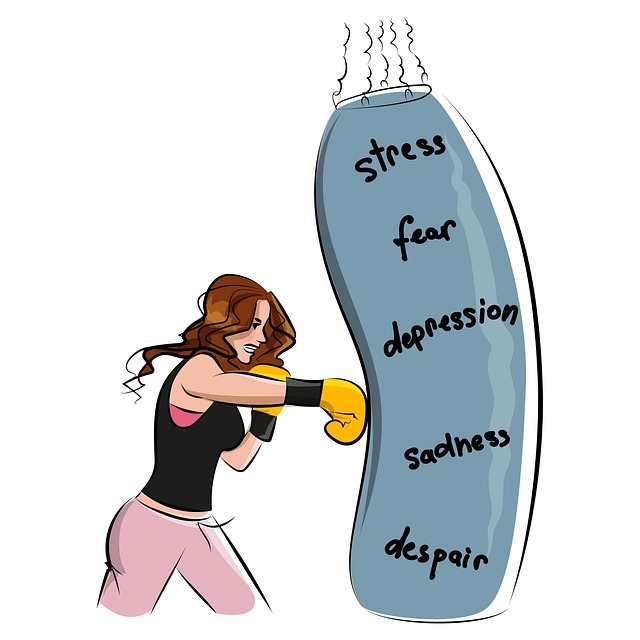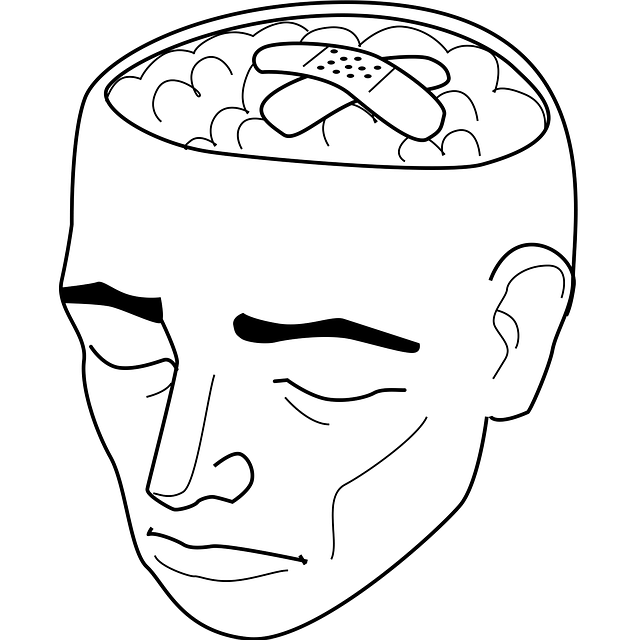Parker ADD-ADHD Therapy offers comprehensive crisis intervention services, combining cognitive behavioral strategies with risk assessment tools for immediate distress management. By focusing on early detection of signs and triggers, their professionals equip individuals and caregivers with coping mechanisms to prevent future crises. This approach prioritizes mental wellness through structured support, stress management workshops, and tailored therapy sessions post-crisis, fostering resilience and positive outcomes.
In times of crisis, effective intervention strategies are paramount. This article provides a comprehensive guide through various aspects of crisis management, including an overview of crisis intervention, the unique role of Parker ADD-ADHD Therapy, and practical techniques for early detection, immediate response, and post-crisis support. Understanding these strategies is essential for professionals and caregivers aiming to offer tailored assistance during challenging situations, ultimately fostering resilience and recovery.
- Understanding Crisis Intervention: A Brief Overview
- The Role of Parker ADD-ADHD Therapy in Crisis Management
- Identifying Signs and Triggers: Early Detection Strategies
- Immediate Response Techniques for Calming Individuals in Crisis
- Post-Crisis Support and Preventive Measures
Understanding Crisis Intervention: A Brief Overview

Crisis intervention is a critical component of mental health support, focusing on providing immediate assistance to individuals facing acute distress or a traumatic event. It involves a structured yet flexible approach to help people cope with overwhelming situations, offering a sense of safety and guidance towards recovery. The primary goal is to stabilize the individual, assess their needs, and connect them with long-term care options.
At Parker ADD-ADHD Therapy, we understand that crises can arise suddenly, affecting individuals across various spectrums of mental health. Our team of trained professionals emphasizes the importance of swift yet thorough risk assessment for mental health professionals to effectively navigate these situations. By offering anxiety relief and stress management workshops within our organization, we empower both clients and caregivers with valuable tools for crisis prevention and intervention.
The Role of Parker ADD-ADHD Therapy in Crisis Management

In the realm of crisis intervention, Parker ADD-ADHD Therapy emerges as a valuable tool for managing intense situations. This therapeutic approach is particularly beneficial when dealing with individuals experiencing Attention-Deficit/Hyperactivity Disorder (ADHD) or similar conditions, offering strategies to navigate emotional regulation challenges. By focusing on cognitive behavioral techniques, Parker ADD-ADHD Therapy equips mental health professionals with the skills to assist clients in understanding and managing their symptoms during crises.
Through this therapy, mental wellness is prioritized by teaching individuals effective coping mechanisms for stress and anxiety. Moreover, it facilitates improved risk assessment, enabling professionals to anticipate potential triggers and develop proactive interventions. By integrating these strategies into crisis management protocols, healthcare providers can ensure more comprehensive care, ultimately fostering a safer and more supportive environment for those in distress.
Identifying Signs and Triggers: Early Detection Strategies

Identifying signs and triggers is a vital step in crisis intervention, enabling professionals to provide timely support. Early detection strategies involve recognizing subtle changes in behavior or communication patterns that might indicate an impending mental health crisis. Through active listening and observation, individuals can pick up on red flags such as sudden withdrawal from social interactions, intense mood swings, or expressed feelings of hopelessness. These signs often require a thorough understanding of the person’s history, including past trauma or underlying conditions like ADD/ADHD, which may manifest in unique ways during stressful situations.
Mental health professionals play a crucial role in implementing risk assessment tools to gauge an individual’s vulnerability. By employing Mind Over Matter principles and cultivating emotional intelligence, they can help individuals navigate triggers effectively. This includes teaching self-awareness skills, coping mechanisms, and strategies for managing stress, thereby fostering resilience and promoting positive mental health outcomes.
Immediate Response Techniques for Calming Individuals in Crisis

In moments of crisis, a swift and effective response can make all the difference in helping individuals regain their composure and stability. Immediate response techniques are crucial tools for mental health professionals, especially those trained in Parker ADD-ADHD Therapy. When faced with a person in distress, simple yet powerful strategies can be employed to calm and de-escalate the situation. One such technique involves active listening, where professionals give their full attention, reflect on what’s being said, and offer empathy. This not only validates the individual’s feelings but also helps them feel heard and understood, which is essential in reducing anxiety and promoting a sense of safety.
Additionally, mental health practitioners can utilize deep breathing exercises and grounding techniques to aid individuals in crisis. Encouraging slow, controlled breathing allows for a physical release of tension and can help disrupt the cycle of panic or heightened emotions. Resilience building, often incorporated into comprehensive risk management planning for mental health professionals, plays a significant role in these interventions. By teaching clients strategies to cope with crises and fostering resilience, professionals empower them to navigate challenging situations more effectively, thereby reducing reliance on crisis intervention as the primary solution.
Post-Crisis Support and Preventive Measures

After an individual has gone through a crisis, providing post-crisis support and implementing preventive measures are essential steps in the recovery process. This phase is crucial for helping people rebuild their lives and fostering mental wellness. It involves offering ongoing therapy sessions tailored to address any underlying issues, such as those managed by Parker ADD-ADHD Therapy, to ensure stability.
Additionally, encouraging clients to adopt healthy coping mechanisms like Mindfulness Meditation and Stress Reduction Methods can significantly enhance resilience and overall well-being. These practices promote a sense of calm, improve emotional regulation, and provide individuals with tools to navigate future challenges, ultimately preventing the recurrence of crises.
Crisis intervention is a multifaceted field, and understanding various strategies like Parker ADD-ADHD Therapy can significantly enhance our ability to manage and support individuals during challenging times. By recognizing signs, implementing early detection techniques, and adopting calming response methods, we can effectively navigate crises. Post-crisis support and preventive measures further solidify these interventions, fostering resilience and recovery. Embracing evidence-based practices like Parker ADD-ADHD Therapy ensures a comprehensive approach to crisis management, ultimately enhancing the well-being of those affected.








